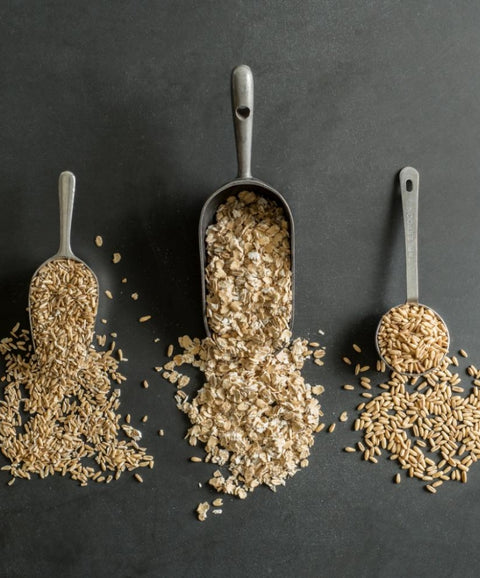OUR MISSION AND GUIDING PRINCIPALS
Maine Grains serves bakers, brewers, chefs and families freshly-milled, organic and heritage grains sourced from the Northeast.
By re-localizing grain production and milling we support the health and livelihood of the farmers and communities we serve. Our traditional stone milling process ensures nutrient-packed products that are full of flavor and perfect for natural fermentation baking and cooking. Maine Grains is creating jobs, improving land use, and providing healthy food for all while serving as a successful model for thriving local economies.
Our Grains
Maine Grains manufactures locally grown stone-milled grains, a staple food in the human diet. Nature knows a good thing. We mill whole grain into flour that is unadulterated, perfectly fresh, and full of flavor. Our grain is packed with vitamins & minerals, like vitamin B, zinc & magnesium. Whole grains are plentiful in protein, healthy fats and oils, and fiber.
We choose age old technology with fresh intention, in an effort to build a lasting agricultural economy for the seed sowers and bread makers of the future.
Through use of our traditional stone milling process, we preserve the exceptional flavor and nutrition inherent in the grain. Slow turning mill stones keep the flour cool which improves performance in natural fermentation baking and enhances flavor. Our freshly milled flour is ideal for all-purpose baking and cooking.
New England has a rich history of producing grains like oats, rye, wheat, corn, and buckwheat. Maine Grains is reviving this tradition to ensure that nutritious local grains are available and affordable for our community. Outside of commodity pricing and markets, Maine Grains works directly with each of its farmers to create transparent, sustainable, and economically feasible trade relationships. Farmers supplying Maine Grains pledge never to use chemical fertilizers or pesticides on their grain crops. The Maine Grains milling facility is certified organic through the Maine Organic Farmers and Gardeners Association.
Our Farmers
Turning the contributions of many into sustenance for all. Maine Grains works directly with growers to increase the market for their organic grain and rotations crops. We work with each of our farmers to create transparent, sustainable, and economically viable trade relationships. Farmers supplying Maine Grains pledge never to use chemical fertilizers or pesticides on their grain crops and our milling facility is certified organic by the Maine Organic Farmer and Gardeners Association.
Grains feed people, animals and help to manage healthy soils – ensuring their vitality for generations to come. A regional gristmill makes high quality grains from local farms available for food, while also making seed, animal feed and the utility of grain byproducts available to communities. Before chemicals were used to kill weeds on farms, cover crops like oats and rye were commonly used to deter weeds naturally. When grown in rotation with other crops like dry beans, peas, and clover, grains help balance nutrients in the soil to produce the tastiest food and lush yields.































